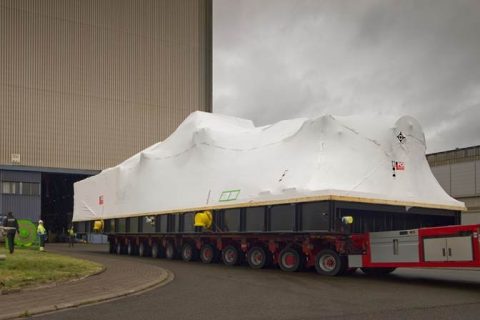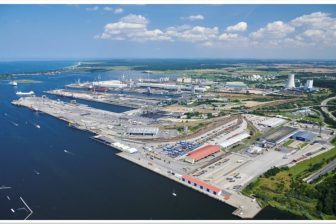
France Cargo International move of 180 ton compressor train
France Cargo International (FCI) moved an 180 ton compressor train from Almelo terminal in the Netherlands, to a job site in Duisburg, Germany.
The compressor train measured 21,67 metres by 6,34 metres, by 5,25 metres. The transport took five days, lasting from 23 September to 28 September 2022. The Paris-based company, FCI, arranged the transportation of the cargo via a multimodal combination, involving the use of a truck, followed by a barge, another truck, and train. Loading onto the barge was completed by using two 250 MT Mammoet cranes.
FCI’s Dutch partner supervised the move. According to WCA Projects, this operation was time-sensitive and faced two main challenges. First, the low water levels in the Rhine River and connecting waterways required the use of a low-draft barge. Rhine levels also caused congestion and backlog in the Almelo Terminal, which in turn made it difficult to find loading space for the truck convoy.



